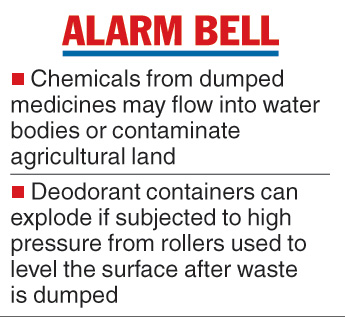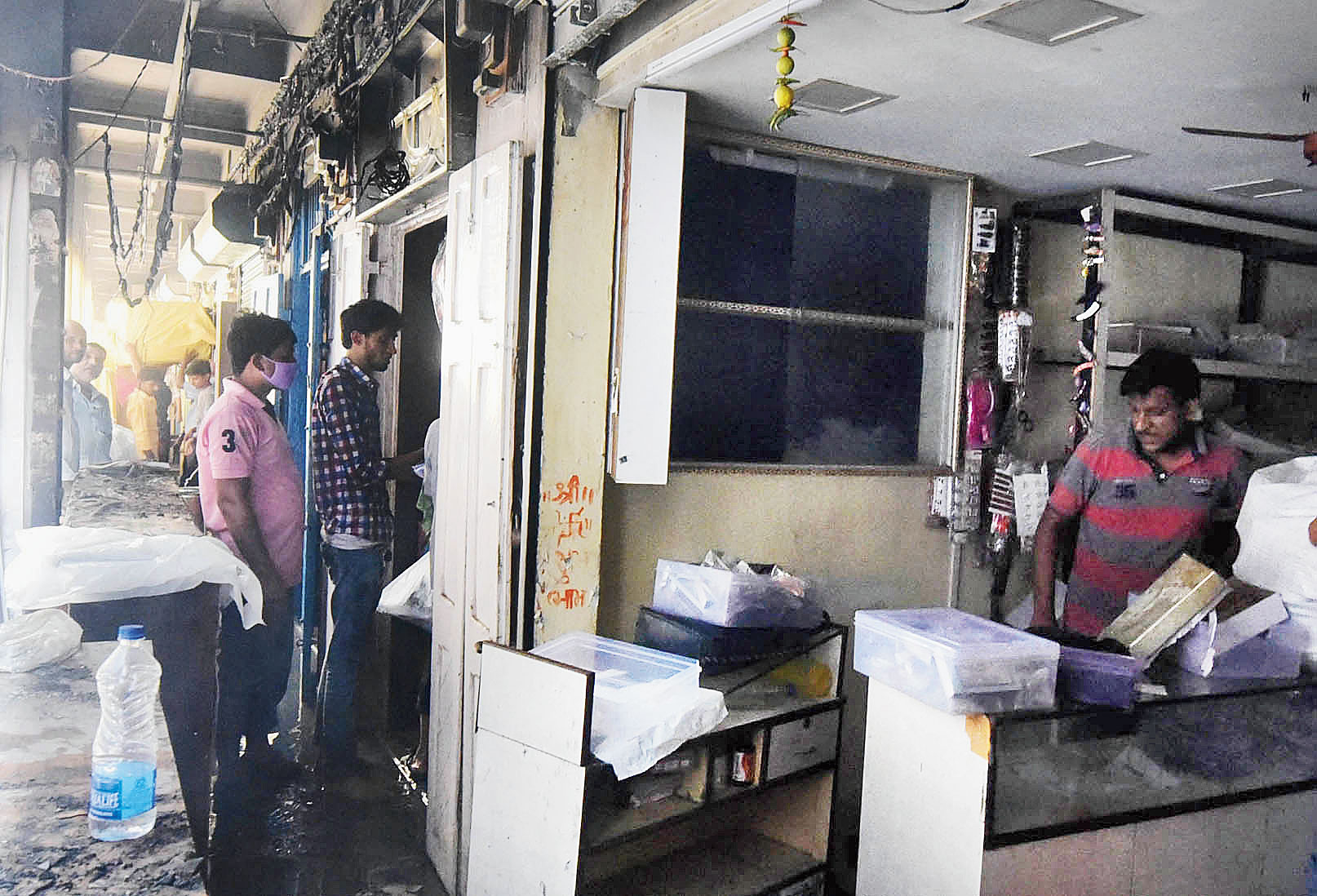Medicines and cosmetics from the fire-ravaged Bagree Market could pose multiple threats if dumped at Dhapa, environmentalists have warned.
The medicines, including antibiotics, could contaminate water bodies and agricultural fields around the dumping ground and end up polluting the groundwater.
A large quantity of the fish sold in the city markets is sourced from the water bodies of the East Calcutta Wetlands that surround the Dhapa dumping ground. Vegetables grown in agricultural fields of the area are also supplied to markets across the city.
An environmental engineer with Ramky Environ Engineers Limited, a company that collects biomedical waste from several hospitals in Bengal and treats it, said the fish could turn toxic after feeding on water in which the medicines dissolve.
“The antibiotics will enter the body of the fish from the contaminated water body. When human beings eat these fish, the antibiotics will enter their bodies too. This is called bio-accumulation. This could make the person resistant to some antibiotics over a period of time,” the engineer said.
A scientist of the National Environmental Engineering Research Institute (NEERI), that works towards mitigating environmental pollution, said the solid waste management rules of Bengal as well as the waste disposal guidelines of the World Health Organisation (WHO) make it clear that medicines must not be dumped in an open landfill site.
Environmentalists recommended that all waste from Bagree Market should be sent to the engineered landfill site in Haldia.
An open landfill site, like Dhapa, doesn’t have any impermeable layer below the waste and toxic water can percolate down the layers to contaminate the groundwater. Rainwater can mix with the toxic elements in the waste and the contaminated fluid can flow into agricultural land and water bodies nearby.
A secured or engineered landfill, on the other hand, is built in a way that the waste doesn’t contaminate groundwater. The waste is not exposed to the elements and there is no threat of rainwater flowing into the surrounding water bodies or agricultural land.
An environmental engineer of the West Bengal Pollution Control Board said if medicines are dumped at Dhapa, the groundwater might get contaminated because of leaching — a process in which substances from solid waste are extracted by dissolving them in liquid.
“Water will percolate down the layers and mix in the chemicals. This liquid will then go down, mix with the groundwater and contaminate it,” the engineer said.
Firefighters involved in the Bagree Market operation said tens of kilos of medicines, cosmetics and deodorants were among the items they found inside the gutted market.
Dumping deodorant containers at Dhapa could lead to explosions, environmentalists warned. “Rollers are used to level the surface of the open landfill site at Dhapa. When deodorant containers are subjected to high pressure, they may explode,” the engineer said.
Sources in the Calcutta Municipal Corporation said some debris had been removed from Bagree Market on Saturday but they were yet to be transported to Dhapa. The corporation would need at least a week to clear all the debris.

The Telegraph










